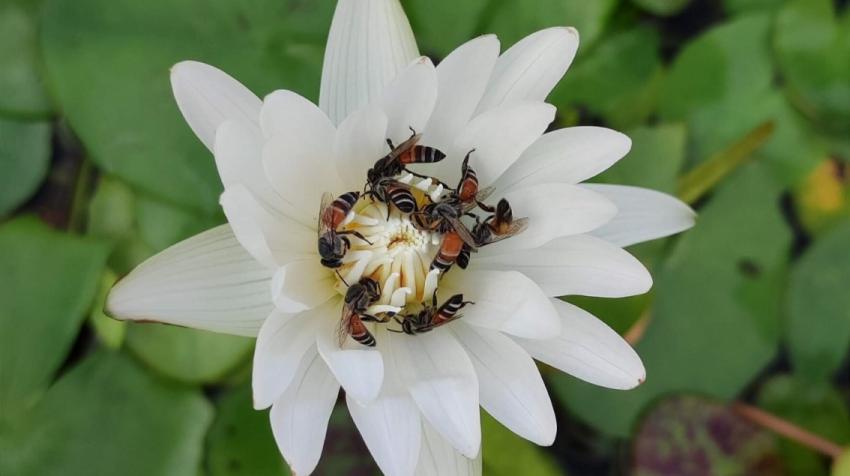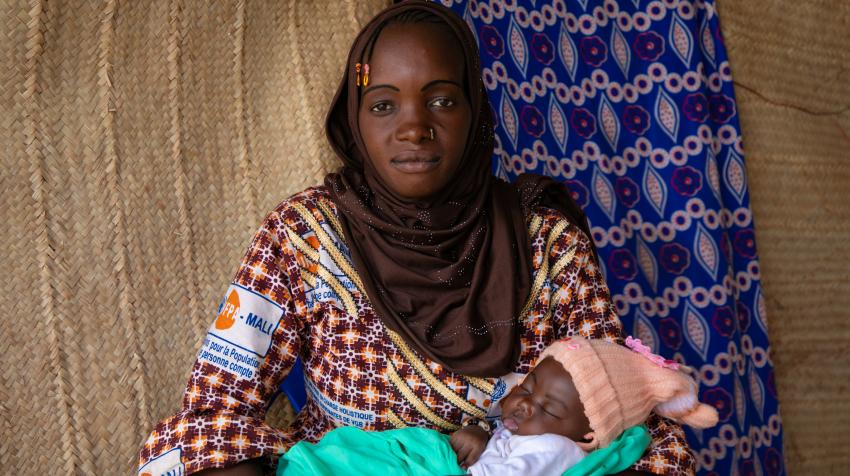June 2012, No. 1 & 2 Vol. XLIX, The Future We Want?
Four years ago, the UN Chronicle offered me a forum to propose, and give reasons for, the proclamation of an annual International Widows' Day. That idea has become reality with the United Nations General Assembly declaring 23 June as International Widows' Day. In a message last year, United Nations Secretary-General Ban Ki-moon observed that "this first International Widows' Day is an occasion to call attention to the many "firsts" that women must face when their husbands die. In addition to coping with grief, they may find themselves for the first time since marriage without any social safety net. Far too often, widows lack access to inheritance, land tenure, employment and even the means to survive. In places where a widow's status is linked to her husband, she may find herself suddenly shunned and isolated. Marriage -- whether she desires it or not -- may be the only way for a widow to regain her footing in society. Of the approximately 245 million widows in our world, more than 115 live in extreme poverty. In countries embroiled in conflicts, women are often widowed young and must bear the heavy burden of caring for their children amid fighting and displacement with no help or support. Some of these widows are teenagers -- or even younger. The deaths of their husbands can leave a terrible legacy these widows must endure throughout their remaining years."
The Secretary-General's moving message brought a story to mind. A story of a girl, rushed and brutalized into womanhood.
She was 12 years old when she was married. At 16, she was widowed. At 18, she was in the sex trade. Her woes began soon after her husband died. She resigned herself to her fate of anonymity until her brother-in-law, her late husband's elder brother, raped her. He warned her that if she complained, he would say that she enticed him by stripping in front of him and she would be thrown out of her home. However, an even more catastrophic destiny was in store for her. One day, the sister-in-law found her husband with the widow. She was thrown out of the house.
This horrific story is of a child widow of a lower middle-class family. However, even older widows of upper middle-class families are also often forced to live wretched lives.
This abandonment is the culmination of her life, one that was built around her husband. She is ousted from the family, society, and from the world she lived in and knew, and abandoned to rebuild her life. Her family does not want her and society couldn't care less. She is deprived of everything she had as a wife. The husband's death eclipsed her life. There is no emotional support, hope, nor future. Suffering in isolation and obscurity, she shares the fate of millions of widows across the globe -- 245 million in 2010, according to The Loomba Foundation sponsored Widows Research Report, and the figure cited by the Secretary-General.
International agencies, women's organizations and Governments have helped draft and legislate anti-discrimination laws and have initiated steps for poverty alleviation, but almost all such measures have bracketed widows with women in general. However, a widow is seldom treated as a woman in developing countries. Thus, the measures for helping women rarely benefit them and often only help perpetuate their abuse. They lose not only their husbands but their protectors, too. Ousted and ostracized, they are thrown out by their families and communities. The result is that poverty alleviation or anti-discrimination programmes carried out by international or women's agencies rarely address the specific circumstances and needs of widows.
It was my father's early death, and my own experience of my mother as a widow, that made me decide that I would try to help educate the children of poor widows. Doing so would not only give hope to widows, but also ensure that their children might grow up with enough qualifications and opportunities to face a different future. Their children might not have to face poverty too.
INTERNATIONAL WIDOWS' DAY
International Widows' Day was initiated by the Loomba Foundation in 2005 at the House of Lords in London and, over the next five years, we campaigned for international recognition of this day as a focus for sustained, effective, global action to bring about a radical and lasting transformation in the plight of widows. In 2006, we held an international conference on the topic at the Foreign Office in London, addressed by widows from ten countries, as well as Cherie Blair, Hillary Clinton, Indian Cabinet Minister Renuka Chowdhury, Yoko Ono and Commonwealth Secretary-General Don McKinnon. Ono and Commonwealth Secretary-General Don McKinnon. The Foundation established offices in the United States and Canada and organized meetings at the United Nations, gaining the attention and support of leaders like Rwandan President Paul Kagame and the then United Nations Secretary-General Kofi Annan.
President Ali Bongo Ondimba of Gabon and his wife Sylvia Bongo Ondimba threw their weight behind the campaign and finally, in December 2010, the United Nations General Assembly adopted Gabon's resolution officially recognizing 23 June as International Widows' Day.
Marking the first International Widows' Day on 23 June 2011, widows, advocates from civil society, diplomats, UN officials, non-governmental organizations and other dignitaries convened at the United Nations for a conference to raise awareness for the plight of widows worldwide and more than 500 million of their children around the world. Many widows live in conditions of abject poverty and degradation and are victims of many forms of violence. Addressing the plight of widows is central to achieving the UN Millennium Development Goals and social and economic justice for women. Gillian Tett, United States Managing Editor at the Financial Times, moderated panels at the conference. Participants included Michelle Bachelet, Executive Director of UN Women; Sylvia Bongo Ondimba, First Lady of the Gabonese Republic; Cherie Blair, President of the Loomba Foundation; Ban Soon-Taek, wife of the United Nations Secretary General; and Amir Dossal, Founder of the Global Partnerships Forum.
On the eve of International Widows' Day, artist Yoko Ono unveiled unique artwork at the United Nations in honour of widows around the world. Additionally, a collection of oil and acrylic paintings highlighting the plight of widows around the world was exhibited by the London-based artist Reeta Sarkar, who dedicated the collection to her grandmother, Shrimati Pushpa Wati Loomba, who was the inspiration for the Loomba Foundation.
This rare designation of an international day of recognition by the United Nations follows independent verification of shocking levels of violence and deprivation faced by hundreds of millions of widows worldwide. Since its inception in 1997, The Loomba Foundation has spearheaded the campaign to speak up for widows' rights globally. During the past 12 months, the Foundation has continued its educational and empowerment programmes in India and other counties in South Asia and across Africa. It also held events in many countries to raise awareness of the plight of widows and the much needed funds to help them.
On International Widows' Day 2012, The Loomba Foundation will be launching a new project to empower 10,000 impoverished widows in India by providing them each with a sewing machine. They will also be given a two-week training course to learn how to make garments. To raise funds for this project, the Foundation will organize a Celebrity Walk at London Bridge with prominent ladies from around the world. The walk will be followed by a banquet at the Banqueting House in Whitehall, London which will be attended by Deputy Prime Minister Nick Clegg and the Chief Minister of Delhi, Shrimati Sheila Dikshit. The success of this effort will show how far the widow has travelled -- from an object of revulsion and exile, to one of pity and compassion and, now, to one where she is a participant in, and an agent of, sustainable development. The sewing machine is a symbol and an affirmation of that identity; it allows locally resourced materials to be transformed into clothes that are affordable, aesthetic and in tune with the seasons and climate of the area where they are worn. That transformation is made possible by human skill, human effort and human ingenuity possessed and displayed by proud and resolute women who may have lost a husband, but who possess and can still enrich a life.
The garment each widow will weave is a metaphor too. For, as Secretary-General Ban reminded us last year, "despite the many difficulties widows face, many make valuable contributions to their countries and communities.taking in orphans, serving as caregivers and reaching across lines of conflict to mend tears in the social fabric." As we work to develop, and to sustain, of this precious fabric, we are blessed to have the potential this vast and undimmed resource at our side.
The UN Chronicle is not an official record. It is privileged to host senior United Nations officials as well as distinguished contributors from outside the United Nations system whose views are not necessarily those of the United Nations. Similarly, the boundaries and names shown, and the designations used, in maps or articles do not necessarily imply endorsement or acceptance by the United Nations.




